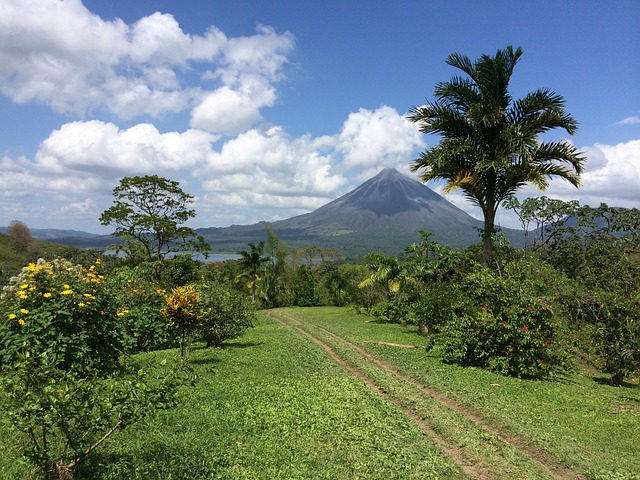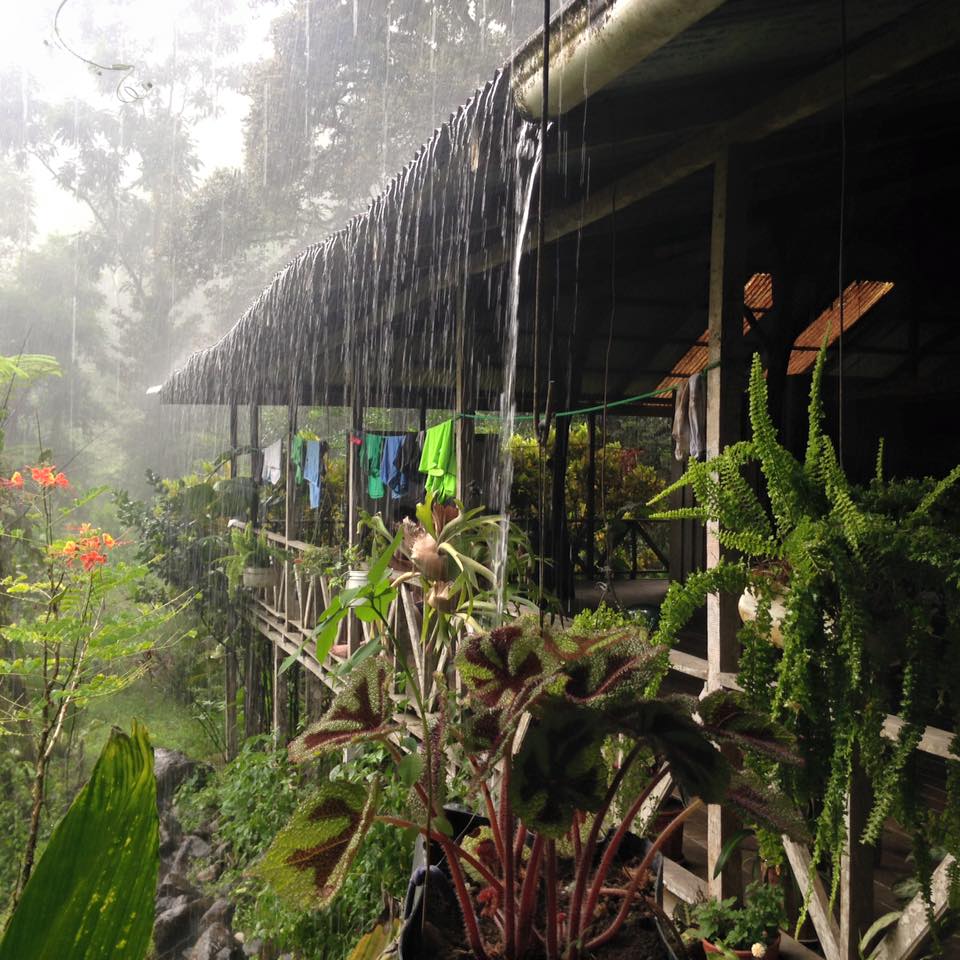Domestic Goddess and Cattle Herder: My Homestay in Costa Rica

The first thing I noticed as my trekking group wound its way down the mountain was that the homestay in Costa Rica that we were heading towards had no walls. Everyone in my group was covered in mud and sweat from our 10 mile hike through wilderness that looked directly out of Jurassic Park (fitting, as the fictional island is supposed to be off the coast of where we found ourselves – beautiful Costa Rica).
When we arrived at our destination, the first homestay of our nine day hiking tour, an older woman greeted us. I noticed her work clothes, her sunburn, her callused hands and her muscular body. She looked so different from the young women we had encountered on the beach of Dominical. Indeed, central Costa Rica was another world, and the experience of being a woman here was something different entirely.
Visiting San Jose, or even the tourist towns along the coast, one gets the impression that being a woman in Costa Rica means much the same thing as being a woman in the United States. In San Jose, I had seen women rushing for the bus in the morning, pulling at their hemlines, running in high heels to make it to work on time. Many women in the city hold professional jobs, and wage equality between the sexes is closer than it is in the USA. I felt kinship with these women, trying to juggle the myriad responsibilities of modern life. In Costa Rica, like most of Europe and the US, many households include two working parents, and in urban areas, it’s not uncommon for men to pitch in with domestic chores.
In a traditional rural household, the woman is still the domestic goddess, even if she does knot the bottom of her gown on her way to herd cattle.
All of this is not to say that women in Costa Rica are treated equally to men, or even well. Visit the beach and the infamous machismo becomes apparent. Men catcall women or attempt to grab them. They follow foreign women, asking them out relentlessly. As Costa Rican fathers often tell their sons, you can’t sleep with every woman in the world, but you might as well try.
But if you want a real look at Tico (Costa Rican) life, make sure to book a homestay in Costa Rica. The trekking trip I was on, organized by G Adventures, visited three households. The route we were hiking across the interior of the mountainous country did not exactly feature luxury hotels, so the guides had negotiated with homeowners along the way, offering them money and tips to host small groups like mine. While the apartments and small houses of San Jose might look similar to what you can find the world over, the homes you experience in the lesser-traveled parts of the jungle give you the distinct feeling that this is the real Costa Rica.

Dinner in a home offers the best chance to see how things work for a typical Costa Rican family. The woman of the house, as well as her female children (and there are often many) congregate in the kitchen, bringing fresh fruit picked on the property, stirring large pots of beans, making coffee. But if you follow them outside, you’ll also find them tending to the animals – slaughtering pigs, milking cows and, in one case, birthing a calf while the men sell goods in town.
As we found at each of our homestays, the women take an active part in the family business, which is usually a combination of putting up tourists, raising livestock, harvesting local produce, and making a specialized item. In one home this item was chocolate (the smell was incredible!) and in another it was a candy made from cane sugar, which the women help chop down with machetes and crush into a paste. As a guest, I was expected to participate in these activities, and thus found myself carefully selecting cocoa beans. Like Costa Rican women, a female guest cannot be afraid to get her hands dirty, or to hike 10 miles over rugged terrain to the nearest town.
When it comes time to cook, the kitchen is still the female domain, and the ladies of the house are still expected to serve the men. They also perform clean-up duty while the men lounge in hammocks. The men’s days are strenuous, but certainly no more so than the women’s. The women spend the rest of the evening washing clothes, making tea on demand, and sweeping the floors while the men play cards and boast about their infinite bravery. The women buzz across the concrete floors, mysteriously tight-lipped, leaving you to wonder whether their stories might outshine the men’s. Eventually, everyone retires to their shared bunks, the noises of the jungle flooding in on their dreams.
Homestays offer a glimpse into the contrast between urban and rural life in Costa Rica. The country may have a female president and, arguably, be more progressive in gender issues than the United States, but in a traditional rural household, the woman is still the domestic goddess, even if she does knot the bottom of her gown on her way to herd cattle.









What a moving story! It’s amazing how women all over the world work harder than men. It’s actually in sharp contrast to another travel site I was reading (www.therunawayruca.com), where the writer declares that she’s just been paroled – from WIFE sentence. I wonder what these Costa Rican women would think about that! The contrasts between the cultures are really interesting.